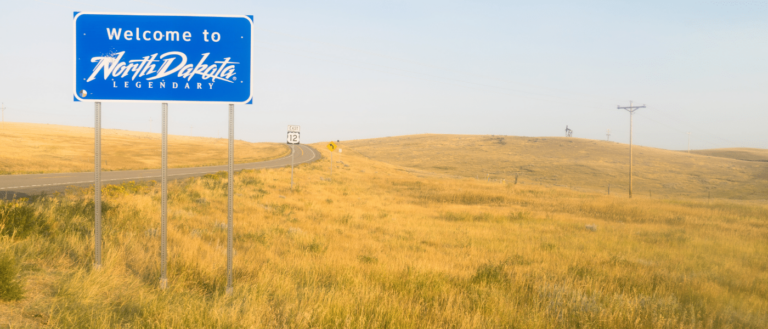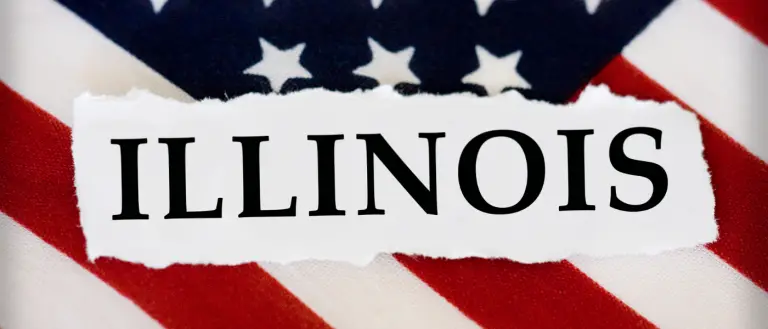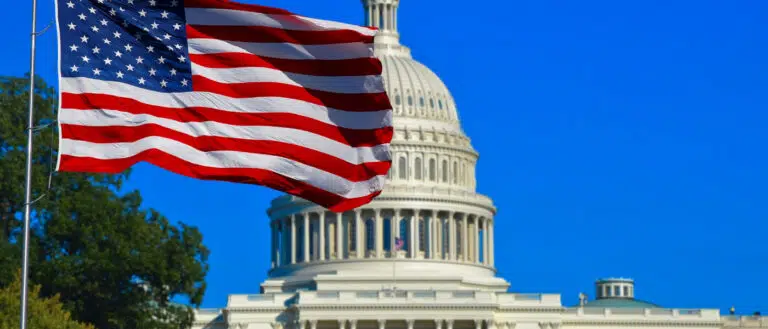Federal Sports Betting Regulation Efforts

In 2018, Senators Orrin Hatch and Chuck Schumer introduced a federal sports betting bill called the Sports Wagering Market Integrity Act. The key goals of the bill were:
- To establish federal standards and guidelines for legal sports betting across the United States. This was in response to the Supreme Court’s decision that year to overturn the federal ban on sports gambling.
- To require sports betting operators to use “official league data” provided by the professional sports leagues. This was a controversial provision that the leagues had been pushing for.
- To provide a federal framework for consumer protection, integrity monitoring, and suspicious activity reporting related to sports betting.
Ultimately, S.3793 did not gain much traction in Congress and never made it to a vote.
The US online sports betting industry and some lawmakers opposed parts of the bill, such as the requirement to use official league data. Instead, regulation of sports betting was left up to individual states after the Supreme Court decision.
Sports Wagering Market Integrity Act Background
Former Senator Orrin Hatch announced plans to introduce legislation regulating sports betting nationwide within hours of the Supreme Court’s decision overturning PASPA in 2018.
In a statement, Senator Hatch explained his rationale:
“The problems posed by sports betting are much the same as they were 25 years ago. But the rapid rise of the Internet means that sports betting across state lines is now just a click away. We cannot allow this practice to proliferate amid uneven enforcement and a patchwork race to the regulatory bottom. At stake here is the very integrity of sports. That’s why I plan to introduce legislation in the coming weeks to help protect honesty and principle in the athletic arena. I invite stakeholders and my colleagues on both sides of the aisle to join me in addressing this important issue.”
Senator Hatch did not offer details on what his bill would seek to do, but the statement issued by his office made it clear his goal was to regulate sports betting rather than prohibit it.
Interestingly, Senator Hatch was one of the four original authors of the Professional and Amateur Sports Protection Act of 1992 that prohibited the states from legalizing or regulating sports betting.
The NFL, NBA and the NCAA also issued statements signaling support for federal betting regulation.
Immediately after the Supreme Court ruling, the NFL said this:
“The NFL’s long-standing and unwavering commitment to protecting the integrity of our game remains absolute. Congress has long recognized the potential harms posted by sports betting to the integrity of sporting contests and the public confidence in these events.
“Given that history, we intend to call on Congress again, this time to enact a core regulatory framework for legalized sports betting. We also will work closely with our clubs to ensure that any state efforts that move forward in the meantime protect our fans and the integrity of our game.”
Federal Regulation Had Low Odds from the Beginning
As a detailed post by Above the Law noted at the time, getting Congress to agree on how to regulate sports betting and pass a federal bill into law was a low-odds undertaking from the beginning.
Even so, Senator Hatch pushed forward with the proposal and gained Senator Chuck Schumer’s support. In a memo Senator Schumer shared with ESPN, he outlined some of the key provisions he sought in a federal sports betting bill:
- Require sportsbook operators to only use official data supplied by the leagues
- Allow the leagues to control what types of wagers may be accepted by sportsbooks
- Establish a minimum age of 21 to bet on sports
- Require sportsbooks and advertisers to take reasonable steps not to target minors and to clearly disclose the dangers of gambling
- Require sportsbooks to share suspicious betting activity among other one another, with leagues and with regulators
- Give states the freedom to choose whether or not to participate in sports betting, but not to set their own rules
Schumer’s memo also recommended the leagues increase monitoring to protect their games from unethical behavior associated with gambling.
However, Schumer stopped short of recommending integrity fees that would force sportsbooks to funnel money to the pro sports leagues.
In an accompanying statement, Schumer said this:
“As a New York sports fan – especially my Yankees and Giants – and a senator, my priority in the wake of the Murphy v. NCAA decision is making sure the integrity of the games we love is preserved, that young people and those suffering from gambling addiction are not taken advantage of, and that consumers that choose to engage in sports betting are appropriately protected.
“With the Supreme Court’s ruling, it’s incumbent on the federal government to take a leadership role and provide the necessary guidance to prevent uncertainty and confusion for the leagues, state governments, consumers and fans alike.”
Schumer’s memo was well-received by the major sports leagues and the NCAA. The NBA, MLB and PGA Tour issued a joint statement supporting Senator Schumer’s call for federal regulation.
The NFL and NCAA also issued a joint statement echoing those sentiments.
The AGA Responds to Federal Regulation Proposal
The American Gaming Association responded immediately to Chuck Schumer’s memo with a statement opposing federal regulation.
The American Gaming Association issued a statement in response to Chuck Schumer’s memo on August 29th and followed up with a letter addressed to Schumer on Thursday. The August 29 statement reads as follows:
“The casino gaming industry shares Senator Schumer’s goal in preserving the integrity of sporting events and providing consumer protections. Federal oversight of sports betting was an abject failure for 26 years only contributing to a thriving illegal market with no consumer protections and safeguards. New federal mandates are a nonstarter.
“The casino industry is working with stakeholders to ensure the proper protections for consumers, and the integrity of bets and sporting contests are included in state policy, universally implemented by all operators in those states, and overseen by effective state and tribal gaming regulators.”
The AGA followed up that statement a couple of weeks later with a letter addressed to Senator Schumer outlining its vision of regulated sports betting.
In the letter, the AGA outlined five core areas in which sports betting policy should focus and explains how the states can address each of those concerns:
- Promote responsible gaming and responsible advertising: The AGA encourages all operators to participate in the AGA’s Responsible Gaming Code of Conduct
- Protect game integrity: The AGA promotes the use of new technology and “big data” to identify irregularities and encourages operators and regulators to share information to better identify and protect against potential integrity issues.
- Discourage enacting legislative preferences for specific business interests: The AGA opposes government mandates when private contracts between entities will do. For instance, the AGA opposes government mandates forcing legal sportsbook apps to buy official data from leagues when private deals can be made between industry stakeholders.
- Empower state and tribal regulation: The AGA believes allowing states and tribes to regulate gaming on their own is the best approach because states and tribes already regulate themselves when it comes to lotteries and casino gaming. The regulations in place at the state level already effectively set age controls, record keeping, licensing suitability, and more.
- Place consumers first: The AGA encourages all stakeholders to understand why consumers resort to illegal offshore sportsbooks and put in place policies that allow licensed, legal sportsbooks to effectively compete with illegal providers. Government force has proven unsuccessful at stopping the illegal betting industry (PASPA was ineffective at preventing illegal betting).
NFL and AGA Present Opposing Views to Congress
In September 2018, the NFL and AGA presented opposing views during a House subcommittee hearing related to whether congress should provide federal oversight of sports betting.
Sports Wagering Market Integrity Act Goes Nowhere
In December 2018, Senators Orrin Hatch and Chuck Schumer formally introduced the Sports Wagering Market Integrity Act of 2018.
Early on, there was little indication that Hatch and Schumer would be able to mobilize enough support to regulate sports betting at the federal level.
Their bill was read twice and referred to the Committee on the Judiciary, where it received no vote and proceeded no further.
Federal Oversight Put to Bed in 2020
A Senate Judiciary Committee hearing in 2020 indicated little interest in revisiting the issue despite testimony that legal college betting would degrade “the integrity of amateur competition.”
In a wide-ranging, multi-part hearing ostensibly about the rights of college athletes, which touched on scholarship allocation, race relations and transgender participation, Senators showed comparatively little interest in U.S. sports betting.
American Gaming Association President Bill Miller testified that that’s the best step forward.
“Any efforts to use the power of government to impose costs, eliminate operators’ market-based choices, or make it harder for consumers to place legal wagers will directly undermine the goals we all share,” Miller said.
Miller also reviewed the extensive state-level guidelines that have regulated gaming for decades. Age restrictions, record-keeping, and licensing determinations have continued without major issue, meaning further federal oversight would have been detrimental.
Instead, Miller argued that Congress should strengthen match-fixing penalties, but also reduce or repeal the 0.25% sports betting excise tax.
“The tax does not advance any specific policy goals and continues to make it more difficult for legal operations to compete with illegal bookmakers,” Miller said.
Chair Lindsay Graham and Ranking Member Richard Blumenthal followed Miller’s testimony with brief remarks but offered nothing beyond an undetailed commitment to fight illicit gambling and even less input on formal policy.
University of Pittsburgh Director of Athletics Heather Lyke said her school and the Atlantic Coast Conference still opposed college sports wagering, despite the proliferation of legal sports betting since the Supreme Court decision.
“While sports wagering might create revenue opportunities for states, it will ultimately undermine the integrity of intercollegiate sports and the academic, personal and social experiences of students and student-athletes at our institutions,” Lyke testified.
Lyke’s testimony underscored the gambling fears still lingering in college athletics, but there was little indication lawmakers would clamp down on collegiate betting, especially at the federal level.
Neither Graham nor Blumenthal discussed any specific proposals, and after Graham prodded Miller about some jurisdictions’ in-state collegiate wagering bans, he seemed content with Miller’s answer that it was partially due to the university’s influence in the legislative process.
Though the committee chair said he worried about college prop bets, he said he largely supported legal gambling and made no mention of a blanket collegiate betting or even college prop betting ban.
When pressed by Blumenthal, Lyke said she couldn’t quantify the role expanded legal gambling played in tempting college athletes but said they faced “more pressure than ever.”
In an indirect rebuttal, Miller said most college sports betting scandals were caught by legal wagering regulators, which wouldn’t be possible in an unregulated market.
Miller then reaffirmed amateur and professional sports wagering’s biggest threat remains legal stakeholders’ fight against the misunderstanding surrounding offshore and unlicensed bookmakers, which is still ubiquitous despite the proliferation of regulated options.
“The primary role of the federal government should remain enforcement against the illegal marketplace and represents the most meaningful solution to help ensure the integrity of sports,” Miller said in closing his prepared remarks before the committee.
“Legal sports betting operations have an overwhelming economic interest in clean competition and will continue to work with regulators and law enforcement to ensure that criminal efforts to undermine sports integrity are detected and deterred.”
The committee’s top officials didn’t push either panelist much further. A handful of other committee members that had floated in and out of the multi-hour hearing, peppering an earlier panel of college athletics stakeholders, had departed the meeting room by the end of Miller’s testimony.
To this day, sports betting remains an issue handled exclusively by the states.
Ryan Butler is a legislation analyst for BettingUSA.com specializing in US sports betting legislation. Ryan breaks down the latest bills in each state to ensure our readers are up-to-date on where their states sit on sports betting. You’ll often find Ryan listening to committee hearings or preparing for the latest legislation based conference.






